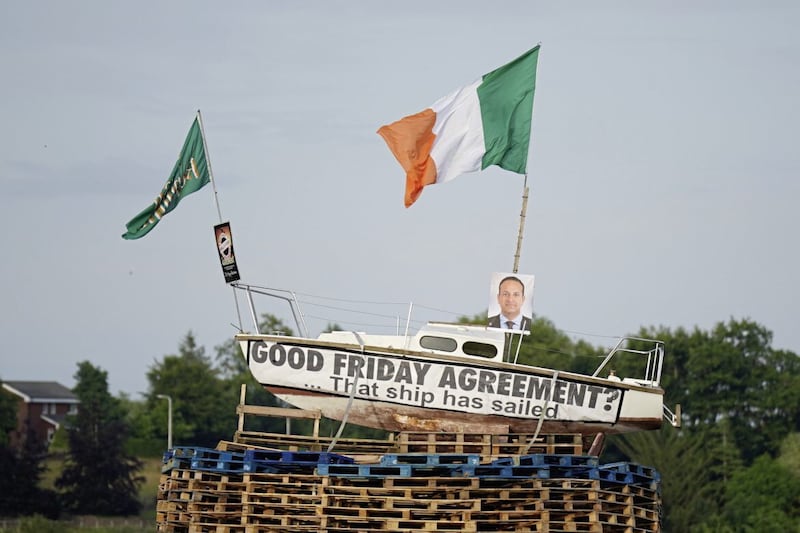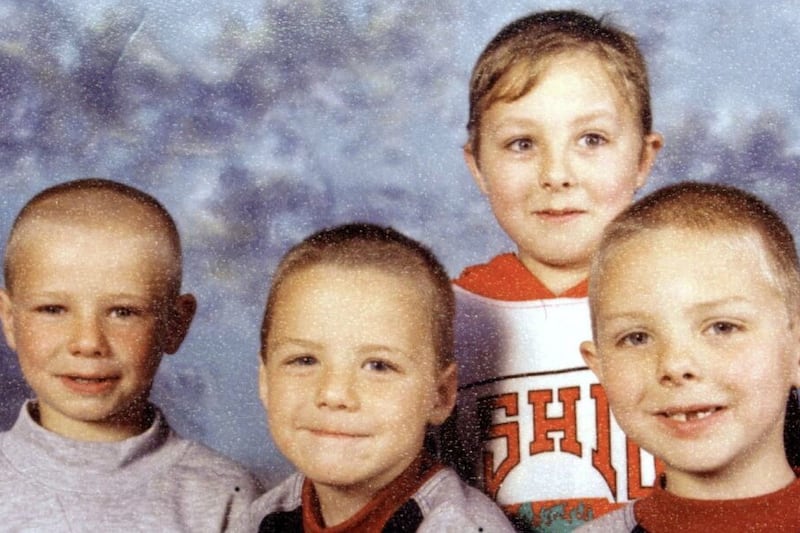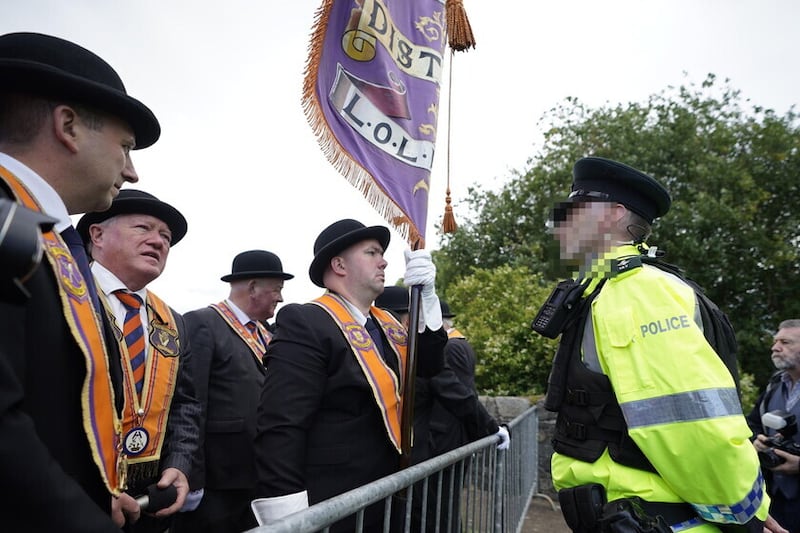A quarter of a century since the shocking deaths of the Quinn children effectively brought the Drumcree parading dispute to an end, it is alarming that some wish to turn the clock back to one of the darkest periods of our recent history.
Hundreds of Orange Order members and supporters took part in Sunday's annual Drumcree parade, marking 25 years since the Parades Commission first ruled it should not return down Portadown's mainly nationalist Garvaghy Road.
That decision in 1998 sparked a bitter and violent stand-off involving thousands of loyalists and an enormous police and army operation to enforce the independent body's determination.
Read more:
DUP urged to show leadership today, not refight 25-year-old dispute over Drumcree march
Lighting of Taoiseach's image on top of bonfire condemned by unionist politicians
What are eleventh night bonfires?
Patrick Murphy: What exactly is the Orange Order celebrating?
The disorder also spread across the north, culminating in the tragic deaths of Richard (11), Mark (8) and Jason Quinn (9) in a sectarian arson attack on their home in Ballymoney, Co Antrim.
While the Portadown lodge has continued to apply each year to complete its return parade, support for the protest quickly dissipated and the wider community was gradually able to return to normality and rebuild shattered relations.
In the case of Drumcree and several other flashpoints areas, we have thankfully now moved from a period fraught with tension each July to a largely peaceful Twelfth holiday.
Which makes it incomprehensible that some voices, including prominent DUP representatives, would wish to resurrect a dispute that the vast majority believe to have been consigned to history.
An early day motion tabled by Upper Bann MP Carla Lockhart on June 28 asked the House of Commons to express regret that the Parades Commission "continues to deny the brethren of Portadown District LOL 1 their right to return home from an act of worship via their traditional route".
Tellingly, it had only been signed yesterday by three of her own DUP parliamentary colleagues.
It also comes as the Orange Order has considered voluntarily re-routing its main Belfast parade due to concerns about anti-social behaviour.
Meanwhile, any call for respect for cultural traditions is greatly undermined by the messages of hate that continue to appear on many loyalist bonfires, including the burning of a tricolour and image of Leo Varadkar in Moygashel, Co Tyrone at the weekend.

DUP leader Sir Jeffrey Donaldson's acknowledgement of this yesterday was welcome, as was condemnation from UUP leader Doug Beattie.
It must be hoped that this message reaches across the community as other bonfires are prepared this week and the remainder of the Twelfth period can pass off in a spirit of tolerance and mutual respect.









